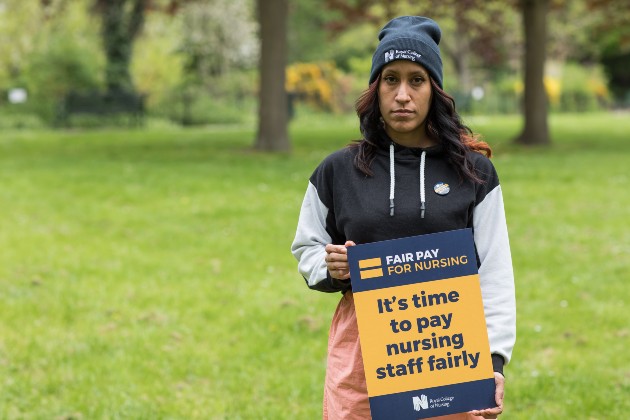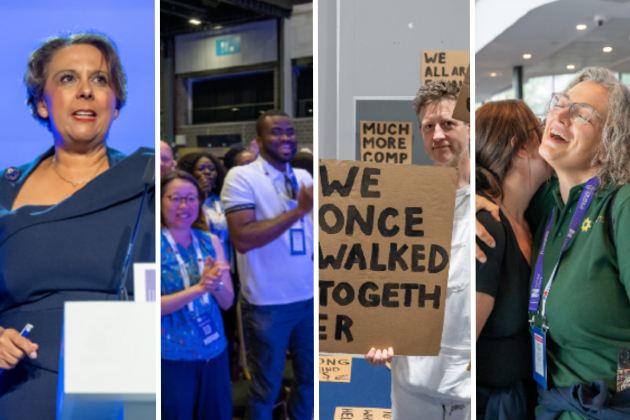“If your English was better, you would understand what I’m saying.”
This is what a consultant said to Ruby* when she questioned a decision on consent at the start of a surgical procedure.
As a registered nurse with 13 years of experience behind her, Ruby was shocked at what she'd heard. While she knew team members didn't always agree, hearing her expertise questioned with a racially motivated comment was distressing.
Wanting only to be an advocate for her patient, she remained calm throughout, but knew she had to stand her ground.
With the RCN's support she demonstrated to other nursing staff that behaviour like this, whether name-calling or in any other form, would not be tolerated.
Racism in real settings
On the day of the incident, Ruby could see there was a different set of numbers on the patient’s wristband to those on the consent form, which raised serious concerns that the patient had not consented to the surgery.
She had no choice but to raise this as an issue and warn against proceeding.
You’re insulting and upsetting me
While it’s not unusual for members of multidisciplinary teams to have varying opinions, the consultant refused to listen and said Ruby was delaying their surgical list.
Ruby refused to back down and insisted the correct protocols must be followed. She was shocked when the consultant then attacked her language skills. Like many nursing staff, Ruby had been born overseas but had worked in the NHS for many years.
Ruby remained calm. “You’re insulting and upsetting me – I can’t continue in this situation,” she remembers saying.
Not backing down
Ruby did everything she could to address the issue both at the time and immediately afterwards. Although it wasn’t a direct racial slur, it was a microaggression.
Microaggressions are comments or actions that can make an individual feel uncomfortable, marginalised and small, and this was the case for Ruby. She later told the consultant how the experience made her feel and discussed it with her manager. With no positive response, she spoke to her RCN representative and with their support she chose to resolve the issue using the formal complaint policy.
This action resulted in the trust launching an investigation where Ruby’s allegations were upheld. In addition, mediation was offered, which gave both parties a chance to rebuild their professional relationship, and present how the situation had affected them.
During these meetings the consultant apologised and acknowledged how microaggressions can happen in NHS settings.
Finally, Ruby felt heard. “This incident was very upsetting, but without the RCN’s help, I don’t think I would have followed it all the way through. I felt empowered to continue and get a satisfactory result. It is possible to stand up to bullying and harassment,” she says.
Racism in the workplace: what to do
- Remember the RCN is here to support you. Don't be afraid to speak up or raise concerns.
- Read the RCN advice guide on discrimination.
- Contact your local rep or the RCN advice service for support and advice.
RCN Officer Stefanie Herring says: “Ruby came to us with a serious problem that she wanted to raise – she didn’t want anything similar happening to someone else. Discrimination of any kind of unacceptable.
“We give members the opportunity to discuss what’s happening and how it’s affecting them. It can be helpful to share with someone who’s not a relative, friend, colleague or line manager.”
Now, Ruby is encouraging other nursing staff who experience bullying or harassment to report it.
“Get the RCN involved early, as they can help ensure you’re heard and have your complaint taken seriously,” she recommends. “It’s not easy to take action, but we must speak up.”
Find out more
- Use our resource on discussing race equity at work.
- How the RCN supported one member financially after a patient attack.
- Former RCN President Sheila Sobrany marks International Day for the Elimination of Racial Discrimination.
*The member's name has been changed








